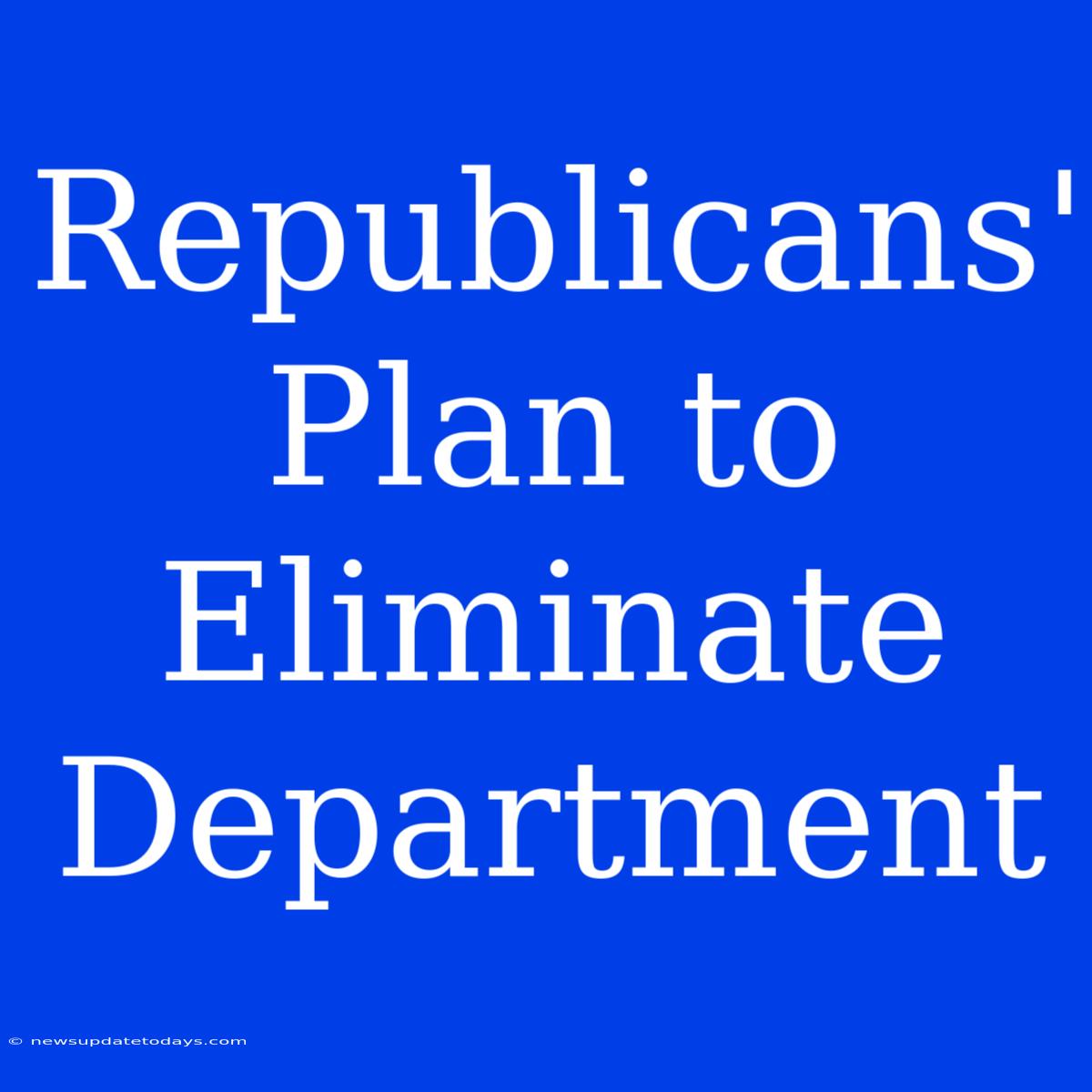Republicans' Plan to Eliminate Departments: A Deep Dive into Potential Impacts
The Republican Party's proposals to eliminate or significantly restructure federal departments have sparked intense debate. This article delves into the specifics of these plans, examining their potential economic, social, and political consequences. We'll analyze the arguments for and against these drastic measures, focusing on the potential impact on various sectors of American life.
Which Departments Are Targeted?
While specific proposals vary depending on the individual Republican politician or faction, several departments frequently appear on the chopping block. These often include:
-
The Department of Education: Arguments for elimination often center on returning education control to states and localities, promoting school choice, and reducing federal spending. Critics argue this would exacerbate educational inequalities and harm vulnerable student populations.
-
The Department of Energy: Proponents suggest this department's functions could be absorbed by other agencies, streamlining the government and reducing redundancy. Opponents counter that this would hinder crucial research and development in renewable energy and national security.
-
The Department of Housing and Urban Development (HUD): The argument for eliminating HUD often focuses on reducing government intervention in housing markets and promoting private sector solutions. However, critics point to the critical role HUD plays in providing affordable housing and addressing homelessness.
-
The Environmental Protection Agency (EPA): Proposals to weaken or eliminate the EPA have consistently drawn strong opposition from environmental groups and Democrats, citing concerns over environmental deregulation and potential damage to public health and the environment.
The Economic Implications
Eliminating entire departments would undoubtedly lead to significant budget cuts. While proponents argue this would reduce the national debt and stimulate economic growth through reduced regulation, critics counter that it could lead to job losses, decreased investment in crucial sectors, and a weakening of essential social safety nets. The economic fallout would likely vary significantly depending on which department is targeted and the specifics of any proposed restructuring.
Social and Political Ramifications
The social impact of such drastic changes could be profound. Eliminating the Department of Education, for instance, could lead to a widening of the achievement gap and decreased access to education for disadvantaged students. Similarly, weakening the EPA could lead to increased pollution and health problems. The political ramifications are equally significant, potentially leading to increased political polarization and intense public debate.
Arguments For and Against Departmental Elimination
Arguments in favor often emphasize reducing the size and scope of government, promoting efficiency, and cutting wasteful spending. Proponents argue that many departmental functions could be handled more effectively by the private sector or state and local governments.
Arguments against typically focus on the essential services provided by these departments, highlighting the potential negative consequences for public health, safety, and the environment. Critics argue that dismantling these departments would weaken vital social safety nets and exacerbate existing inequalities.
Conclusion: A Complex Issue with Far-Reaching Consequences
The Republican Party's plans to eliminate or drastically reshape federal departments represent a significant policy challenge with far-reaching consequences. A thorough and nuanced analysis of the potential economic, social, and political impacts is crucial to inform informed public debate and policymaking. The debate is likely to continue, fueled by differing ideologies and perspectives on the appropriate role of government in American society. Further research and discussion are essential to understand the full ramifications of these proposed changes.

